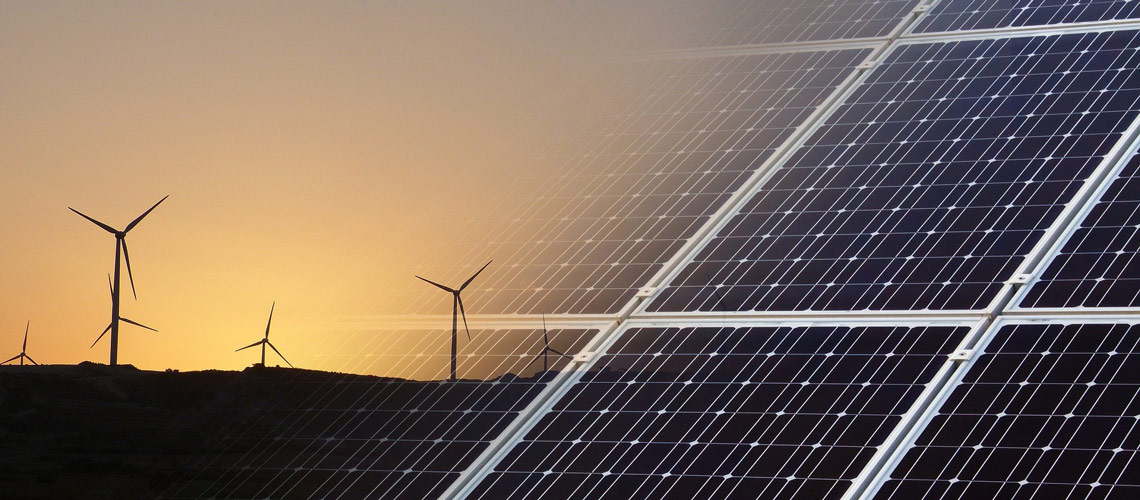AleaSoft Energy Forecasting, October 15, 2021. Royal Decree‑law 17/2021 was validated in the Spanish Congress on October 14. Since it was approved by the Council of Ministers on September 14, it generated a great stir in the electricity sector due to the legal uncertainty generated by the mechanism of revenue reduction due to high gas prices. Its validation in Congress without any change to the original text may mean the end of investments and energy transition.

On October 14, Royal Decree‑law 17/2021, which was approved by the Council of Ministers on September 14, was voted and validated in the Spanish Congress. This Royal Decree‑law includes measures to reduce the impact of the high MIBEL electricity market prices on the bill paid by final consumers. The most controversial measure is the mechanism for reducing the remuneration excess due to high gas prices, which will be in effect until March 31 of next year.
The mechanism for reducing remuneration excess due to high gas prices, which will be applied to infra‑marginal plants in the peninsular territory, including renewable energy plants that do not receive a specific remuneration regime, generated a great stir in the sector from the first moment. On September 21, the Ministry for the Ecological Transition and the Demographic Challenge published a clarifying note sent to the system operator REE, in which it specified that this reduction excludes the electricity covered by any term contracting instrument prior to the entry into force of the Royal Decree‑law, whose price is not indexed to the market price, but this only for contracts that are not signed between companies of the same group.
However, this clarification was not included in the text of the Decree‑law, which was approved without any changes. Another aspect that was not included in the text was the comment of Vice President Ribera who assured that she was working not to apply this reduction in remuneration to those producers that supply energy to industries at reasonable prices.
A very complicated sector to fix with patches
The electricity sector is very complex with a multitude of actors. The remuneration reduction mechanism was treated as if it were simply a game between producers and consumers in a spot market. Even the declarations of the vice president, to exempt from the reduction those who supply energy to industries at reasonable prices, consider the sector as a simple exchange of energy between producers and consumers.
Reality is much more complex. Those who supply energy to large consumers are not normally the producers, but retailers, many of them large retailers of some business group that also has production. These retailers will have acquired the energy from the producers of their own group. In this case, will the producer be exempted from the reduction? How is the flow of energy and contracts accounted for in real cases like this?
There is no point trying to apply such a patch in a sector as large and complex as the electricity sector. In fact, the reduction mechanism does not take into account who may be having more surplus profits at the moment: those who bought energy for 2022 a few months ago in the futures markets and are now selling it 300% more expensive, and who may be not neither producers nor retailers.
Legal uncertainty and enemies of the energy transition
All this, the approval of the decree, the extra comments on how the revenue reduction is going to be applied or not and the difficulty of applying it, only contribute to increasing and lengthening the legal uncertainty that is one of the main enemies of the energy transition.
The energy transition of the next thirty years towards a zero emissions economy requires billions of Euros in investments to undertake all new renewable energy projects. The allies of this transition are investors and developers of renewable energy parks, large companies of the sector capable of mobilising all these investments, and also small and medium‑sized companies with projects at all scales. Enemies of the transition, legal and regulatory uncertainty, which scares investors away, and energy dependence from abroad.
An energy crisis at a European and global level that does not need patches but a long‑term vision
When announcing from Brussels the measures to cope with the impact of high markets prices, it was argued that the long‑term transition and investments in cleaner energy sources should not be interrupted. At AleaSoft Energy Forecasting they echo this approach and urge all authorities, European and Spanish, to look long‑term and take measures that do not hinder the energy transition, always with a long‑term and diversified vision to mitigate market prices risks.
AleaSoft Energy Forecasting’s analysis on the prospects for energy markets in Europe
In the webinar organised at AleaSoft Energy Forecasting on October 7, which also had the participation of speakers from Deloitte Spain, Royal Decree‑law 17/2021 was the subject of several questions from those attending the webinar, demonstrating the interest aroused by the topic in the sector. The webinar also analysed the evolution and prospects for fuels, CO2 and electricity markets, the renewable energy projects financing, and the importance of long‑term price forecasting with hourly detail when preparing financial information was stressed. The recording of the webinar is available for Deloitte Spain and AleaSoft Energy Forecasting clients here.
The next AleaSoft Energy Forecasting’s webinar will be held on November 11 with speakers from Engie Spain on this occasion. In the webinar, the updated analysis of the evolution of energy markets and the renewable energy projects financing will be carried out.

